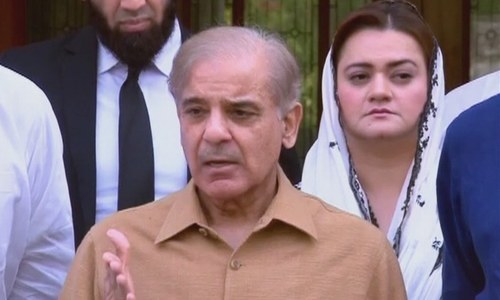The Economic Coordination Committee (ECC) of the cabinet on Monday greenlighted Prime Minister Imran Khan's decision to slap a ban on the export of sugar in order to "stabilise domestic prices" that have been on the rise for the past couple of months.
However, the ECC meeting chaired by Adviser to the Prime Minister on Finance Dr Abdul Hafeez Sheikh did not approve the premier's decision to import sugar through the private sector, noting that "adequate stocks" of the commodity are available in the country, according to a press release issued by the Finance Division.
Prime Minister Imran had on Friday approved a summary to ban sugar exports and to allow the import of 300,000 tonnes sugar through the private sector in a bid to control price hike. His go-ahead came months after the country exported 141,447 metric tonnes of sugar, according to the Pakistan Bureau of Statistics.
While approving the summary, the premier had also decided that white sugar would be imported through the private sector without taxes and duties and no financial support would be provided to the importers by the federal or provincial governments.
In a briefing to the ECC today on the current situation of sugar supply, the Ministry of Industries and Production revealed that adequate stocks of sugar are available in the country but prices in both domestic and international markets are showing an upward trend. The meeting was informed that 1.719 million tonnes of sugar stocks are available with the mills.
"In order to maintain the prices in the domestic market, ECC banned export of sugar," the press release said.
Additionally, the members of the ECC "were all convinced that there are adequate stocks of sugar available in the country and there is currently no compelling reason to import the commodity in the country", it added.
According to the press release, the meeting decided that in case there is "considerable decrease" in the available stock, the ECC "would be willing to reconsider the proposal" for import of sugar as well as the removal of tariff and taxes on the subject import.
The ECC today also directed the Ministry of Industries and Production to communicate with the provincial governments to control sugar prices in the country "as it is [a] provincial subject".
Sugar prices had started rising a couple of months ago, but as the government had put the issue on the backburner, it only added to an already troubled market to the benefit of profiteers and hoarders.
The average retail price of per kilogramme of sugar was Rs53.75 in 2017-18, Rs61.43 in 2016-17, Rs64.03 in 2015-16 and Rs58.91 in 2014-15, respectively. A one rupee increase in 1kg sugar means a net transfer of Rs5.1 billion from consumers.
The annual domestic sugar consumption ranges between 5.1m tonnes and 6m tonnes.
Current stock
It was noted in a recent meeting of the Sugar Advisory Board that 1.719m tonnes of sugar stock was available in the country. Traditionally, a strategic reserve of two months is maintained in the country with a monthly requirement of 0.458m tonnes, Dawn reported.
While sugar stock is available for three months, the position will further improve when the crushing season completes in March. As the prices showed upward trend despite the reports of sufficient stock, the premier took serious notice of the situation and issued directives to check hoarding and profiteering.
However, sugar millers believe that the situation was very much expected because of low rollover stock and lower production of sugar in the country. The shortfall was expected and the government functionaries were aware of it too, one mill owner told Dawn. He said the production of sugar nearing consumption level combined with just 500,000 tonnes of rollover stock set the stage for speculation and rise in the prices.
It was the government’s responsibility to immediately take a decision and slap a ban on sugar exports, which was not done in a timely manner, he added.













































